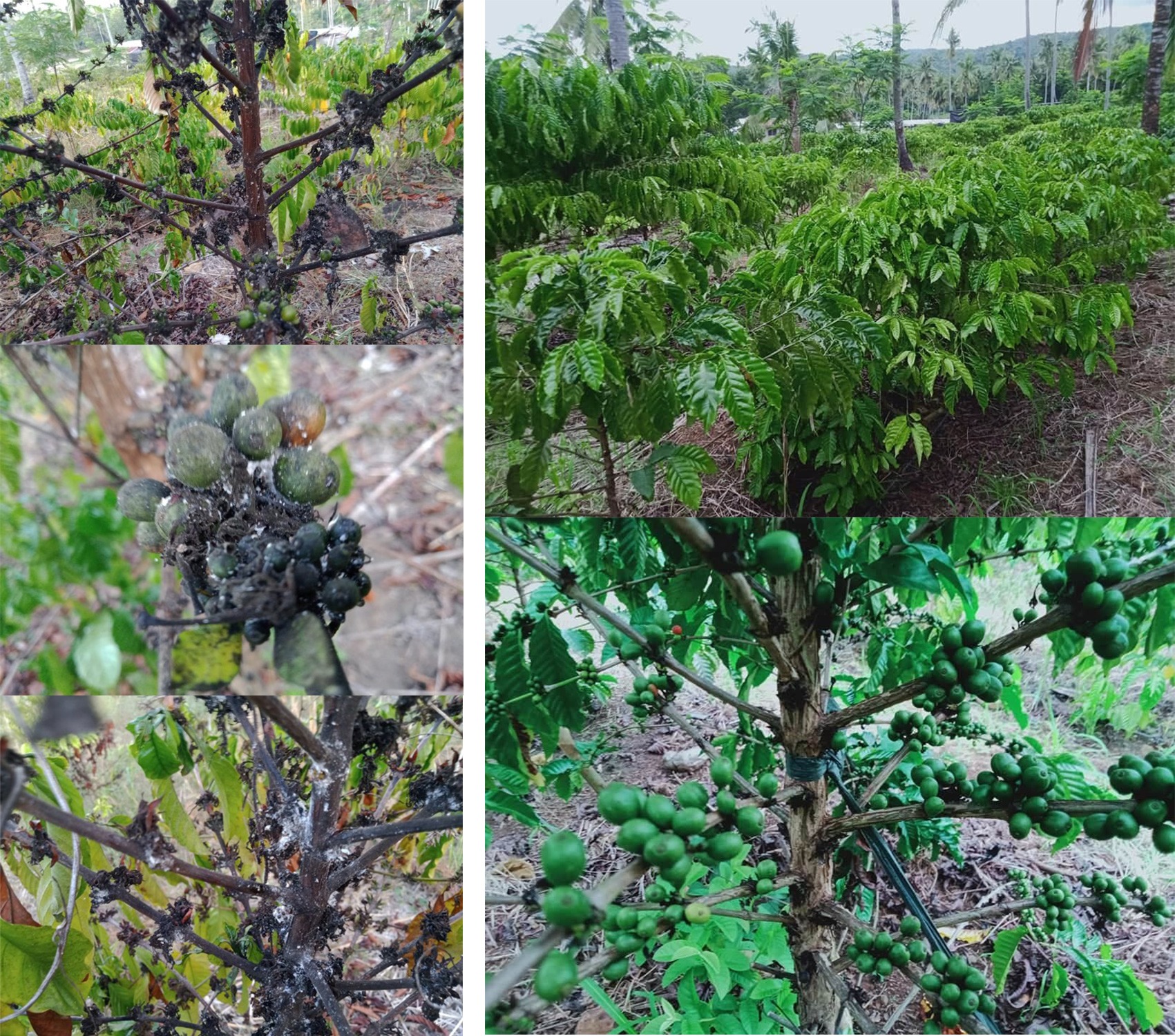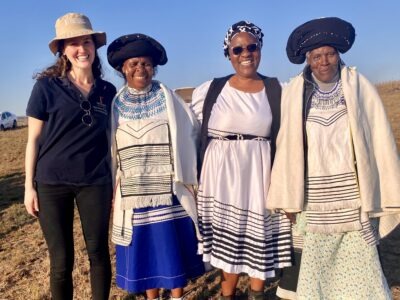
The San Pablo Zamboanga del Sur Coffee Farmers Association (SPZDSCFA), located in the Philippines’ Zamboanga Peninsula Region, had high hopes of becoming a producer of world-class Robusta coffee. The farm, initially consisting of 13,500 trees planted in 2017, added 10,000 trees in June 2019 to boost production in support of its dream.
Then, in the first quarter of 2020, trees on the 20-hectare farm of suddenly began to fail. An infestation of mealy bugs and other pests, along with a weakening of the plants due to malnutrition, had stricken the farm. Ludovico Ramirez, coordinator for the USDA Philippine Coffee Advancement and Farm Enterprise (PhilCAFE), implemented by ACDI/VOCA, said that the farm’s caretaker noticed the presence of pests among the coffee trees and applied several pesticides immediately, but they failed to achieve the desired results. “In fact, the situation of the trees further worsened, and the pest infestation persisted,” Ramirez said.
While doing their best, members of the association lacked the technical knowledge and resources to combat the infestation and nutritional deficiencies prevalent on the farm. The limitations imposed by the COVID-19 pandemic further hindered the association’s access to technical assistance and support.
Online Chat Furthers Sharing of Best Practices
But, with the help of technology, association president Atty. Christopher Vicera reached out to the PhilCAFE team for help. Using an online coffee group chat, he posted photos and videos of the farm that allowed Novie Valerio, PhilCAFE field technician, to conduct a remote assessment and provide recommendations to address the problems.
Using Good Agricultural Practices (GAP) for coffee farms, Valerio worked via online messaging with the collective, teaching them about the application of proper insecticides to address pest and fungi infestation. The farmers also learned appropriate weeding and pruning techniques for coffee trees, including the pruning of the leaves of the shade trees and removal of dried leaves, as well as how to use the friendly fungi Beauveria bassiana and Metarizhium anisoplea to combat the remaining population of mealybugs. Proper and prudent use of fertilizers and foliar sprays were recommended to address the farm’s nutritional deficiencies.
“Two months later with constant monitoring and application of the suggested strategies, the farm was successfully transformed into a healthy state,” said Ramirez. Despite the COVID-19 pandemic, PhilCAFE experts were able to help the farm revive its trees using remote management and online monitoring.
“We at the SPZDSCFA would like to express our profound appreciation for all the assistance extended to us by the PhilCAFE Project through ACDI/VOCA during this most difficult time. The mealybug infestation was successfully controlled, and our coffee farm has fully recovered.”
Christopher Vicera, association president
The USDA PhilCAFE project aims to increase the production of conventional and specialty coffee, boost the Philippine’s coffee exports, and build the capacity and expand service provision of the coffee value chain. It is funded by the U.S. Department of Agriculture and implemented by ACDI/VOCA, an international organization that fosters broad-based economic growth by promoting economic opportunities for cooperatives, enterprises, and communities.
Learn more about the USDA PhilCAFE Activity here.
Learn more about our work in the Philippines here.





